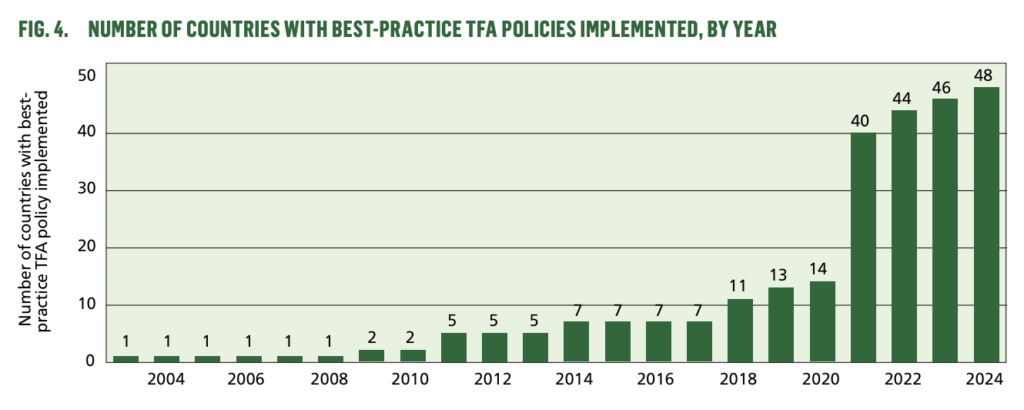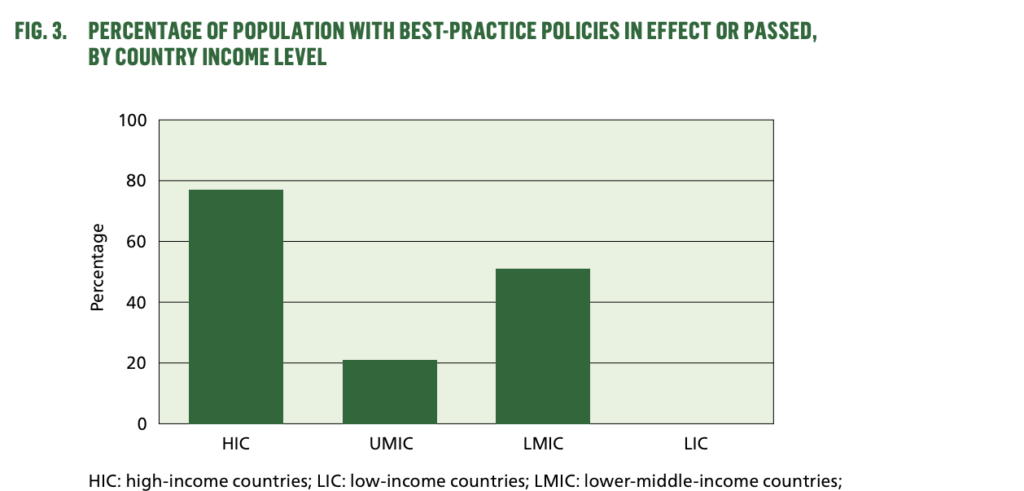Five billion people around the world have no protection against industrially produced trans fats (ITFAs), putting them at risk of heart disease and death, the World Health Organization said.
ITFAs are responsible for over 500,000 premature deaths from coronary heart disease every year. Commonly found in baked goods, cooking oils, and packaged foods, ITFAs are created in an industrial process that adds hydrogen to liquid vegetable oils to make them more solid.
“Take any liquid oil and bubble hydrogen through it, and that makes it more solid,” Dr Tom Frieden, CEO of Resolve to Save Lives said at a WHO press conference on Monday to the launch of the report. “That’s pretty good for baking. Unfortunately, it’s also solid in your coronary arteries.”
The WHO first called for the worldwide elimination of ITFAs in 2018. Best-practice policies have gained significant traction since, protecting 2.8 billion people globally – a six-fold increase – but the WHO target for the total elimination of trans fats by 2023 is “unattainable,” the report said.

Most legislation policing ITFAs has been implemented by high-income nations, with the Americas and Europe taking the lead. The European Union successfully banned all ITFAs from its food supply in 2021, and nearly 80% of people living in high-income countries are protected by what the WHO considers best-practice policies.
Four countries – Bangladesh, India, the Philippines and Ukraine – account for 51% of people covered by best-practice policies in lower-middle income countries, with India representing 41% of that total. While 62 countries have implemented laws to ban ITFAs, covering 46% of the global population, no one living in low-income countries enjoys any legislative protections.
“Trans fat has no known benefit, and huge health risks that incur huge costs for health systems,” said WHO Director-General Dr Tedros Adhanom Ghebreyesus. “Put simply, trans fat is a toxic chemical that kills, and should have no place in food. It’s time to get rid of it once and for all.”
The tobacco of the food industry

Unlike sugar, sodium, or saturated fats, ITFAs are not naturally occurring in any food group. While sugar and sodium can pose serious health risks, their omnipresence in foods people around the world rely on every day makes a ban both impossible and impractical. A ban on nutrients like sugar and sodium is also unnecessary, as their adverse health effects can be managed through light-touch regulation paired with dietary guidelines and recommendations.




